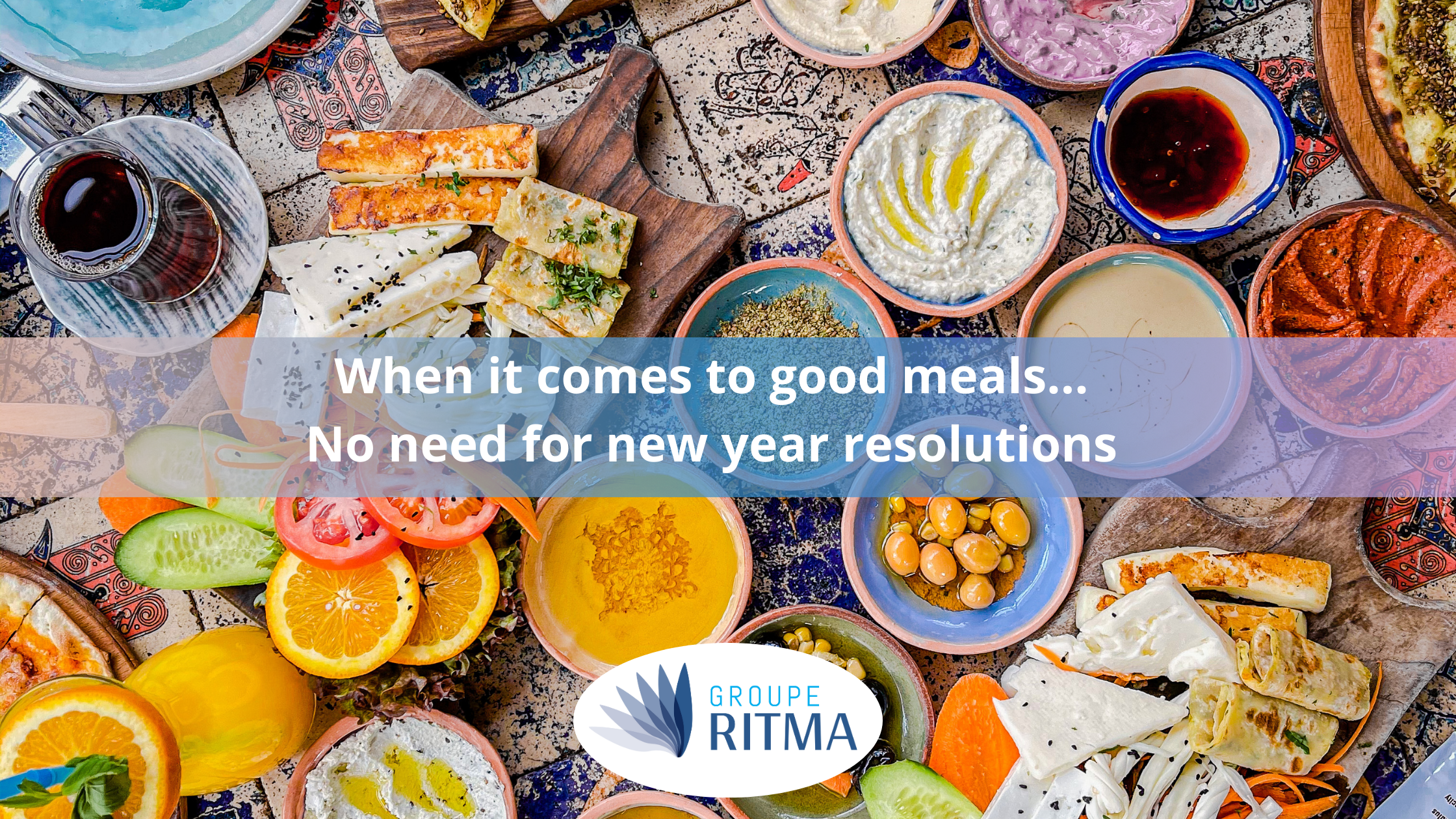
Chronicles
19 December 2023
With food… New year resolutions? You should avoid them!

Each year, we adopt one or more resolutions which often do not hold. Is it the person who is to blame, or the resolution itself?
The simple fact of starting the year with the word “diet” in mind with all the associated deprivations is enough to quickly throw you off the path of good intentions. When it comes to dieting, there is indeed a good chance that resolutions will fail, simply because 95% of people who go on a diet fail. It’s the strategy that is simply failing.
By making a resolution to never make resolutions again, but rather to take action day by day, we break the cycle. Why not instead take a step with the objective of health, well-being and harmony with food throughout the year?
We rarely stop to observe or take a step back from our own behaviour. The simple act of taking action can motivate a person to adopt new habits. But when we talk about changing habits, we must first be well aware of the ones we have now if we want to improve them...and sometimes, the best strategy consists of congratulating ourselves on the progress we have made and staying on the course !
For example, you will be able to assess what suits you or not in terms of your diet and physical activities. What did you do this year that made you feel better physically or not? You can then start from your current habits to do it a little more or a little less depending on the case. For example, if you like walking, you could choose to increase the frequency with which you practice this activity rather than joining a gym if you are not really interested in it. Aiming for a change that doesn't suit you will only add once again to your feeling of failure. Do you like to eat but often eat too much and feel uncomfortable or tired afterwards? Is it then possible to further adjust your portions to your needs in order to aim for physical well-being after meals, without feeling guilty?
Wanting to change your diet is one thing…taking action is something else! Commitment to your approach to changing eating habits is essential to success. It is also important to allow yourself the right to make mistakes, and to stay away from the “all or nothing” law. A resolution, you either succeed or you fail. An action plan is put in place day by day, and it takes shape every day of our lives!
If there is only one resolution to make that will never do any harm: Maintain the pleasure of eating regardless of your action plan. Because to love healthy eating, you have to love eating at all. Furthermore, giving yourself the right to professional help is also a very good start to getting off on the right foot!
Surviving the Holidays when you have diabetes
How do you survive the holidays when carbs get such a bad rap? Don't you have the impression that according to the media, sugar is the enemy number one? This impression is even more striking for people with diabetes.
However, even for a diabetic, carbohydrates are essential. They are in fact the main fuel for the brain and muscles, two of the most energy-intensive organs in the human body. This is why a diabetic person has the same carbohydrate needs as others. What changes is its tolerance to carbohydrates. She must therefore be able to meet the same needs, but by distributing them uniformly in order to respect her own tolerance threshold. She should be careful not to take too many of these carbohydrate foods at once. It's the blood sugar level after the meal that determines everyone's tolerance, but even a diabetic should be able to get through the day without being hungry.
Lacking carbohydrates are just as harmful to a diabetic as it can be to a non-diabetic. With a low-carbohydrate diet, below 20% of calories (as recommended by the ketogenic diet) the fuel for the brain is not sufficient. It therefore draws its energy from the sugar stored in our muscles, in the form of glycogen. Result: when you don't eat, you eat your body reserve… and then you eat yourself. Our blood sugar level (glycemia) rises, not because of our sugar intake, but because of the breakdown of our tissues. It's the same thing for a diabetic. Even though there are no carbohydrates consumed, sugar must continue to circulate in the blood to nourish the brain. Poor diabetes control results when carbohydrates are avoided altogether.
Some diabetics may have experienced this before, noticing high blood sugar levels while fasting, despite no food being eaten at night. It is this production of “endogenous” sugars that causes diabetics to despair when they get up, because even before breakfast, blood sugar levels are already high. This production of endogenous sugars is likely to be more powerful if throughout the day, the diabetic cuts carbohydrates so much that his brain is constantly lacking them.
The first strategy to try in such a situation is to start by meeting the minimum carbohydrate needs, but in a well-distributed manner. Properly controlling your diabetes therefore does not involve total avoidance of carbohydrates, but rather a good intake of carbohydrates, especially complex ones, uniform throughout the day and within the limits of personal tolerance.
A holiday season without remorse, is it possible? If we consider that a diabetic person has needs that usually vary between 45 and 60 g of carbohydrates per meal, there is no reason to miss out on good times!